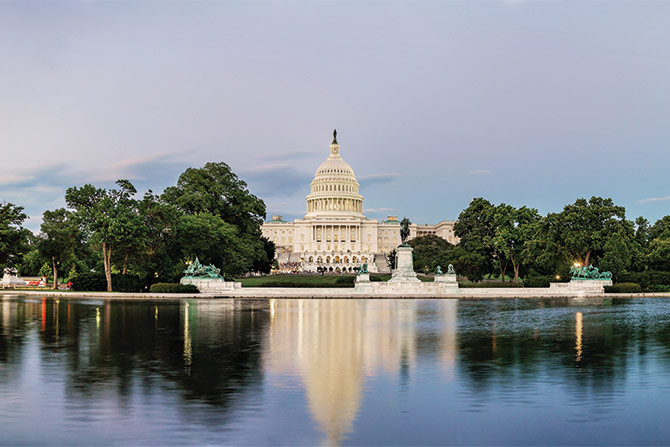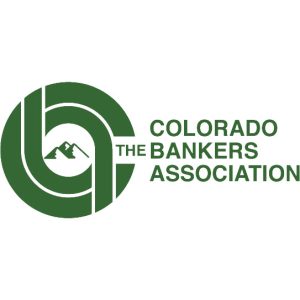Federal regulators are zeroing in on a number of issues affecting our industry. And when it comes to two very different areas – fees and climate change – the Fed may want to change how we do business.
Bank Fees
In April, the Colorado Bakers Association joined the ABA and other banking associations in challenging the CFPB RFI regarding fees. The bureau appears to have already determined that many bank fees are anti-consumer. The RFI asked for “stories” about fees that “you believed were covered by the baseline price,” or “unexpected” or “seemed too high for the purported service,” and closed by asking how the bureau should “address the escalation of excessive fees.” CFPB clearly wants justification to take action.
The market for consumer financial services is competitive, and fees are disclosed to consumers in multiple ways. The bureau’s testing and reports show that consumers understand these disclosures and appreciate the products and services provided even if they must pay fees for them.
This comes on the heels of OCC Acting Director Michael Hsu calling for banks to pursue what he called “pro-consumer” changes to their overdraft programs, noting that they should “resist limiting the extent of their reforms by taking a profit-oriented approach and reverse-engineering costs to meet predetermined revenue targets.”
On March 31, the FDIC released the spring edition of the Consumer Compliance Supervisory Highlights. According to the FDIC, “failure to disclose material information to customers about re-presentment practices and fees” may be deceptive. The failure to disclose material information to customers “may also be unfair if there is the likelihood of substantial injury for customers, if the injury is not reasonably avoidable, and if there is no countervailing benefit to customers or competition. For example, there is risk of unfairness if multiple fees are assessed for the same transaction in a short period of time without sufficient notice or opportunity for consumers to bring their account to a positive balance.”
Regulators are giving every indication that they expect the industry to make significant changes regarding overdrafts, but it is unlikely they will be content with just changes to overdraft practices.
Climate Change and Portfolio Risk
The FDIC issued climate risk guidance and a request for comment on Statement of Principles for Climate-Related Financial Risk Management for large institutions (banks with more than $100 billion of assets). This is in line with the OCC guidance sent in December. The SEC also has a proposed rule (www.sec.gov/rules/proposed/2022/33-11042.pdf) regarding climate-related disclosures.
The Securities and Exchange Commission proposed rule changes that would require registrants to include certain climate-related disclosures in their registration statements and periodic reports, including information about climate-related risks that are reasonably likely to have a material impact on their business, results of operations, or financial condition, and certain climate-related financial statement metrics in a note to their audited financial statements.
The required information about climate-related risks also would include disclosure of a registrant’s greenhouse gas emissions, which have become a commonly used metric to assess a registrant’s exposure to such risks. The proposal requires disclosure of a registrant’s direct GHG emissions (scope 1), indirect emissions from purchased energy (scope 2) and indirect emissions from activities upstream and downstream in a registrant’s “value chain,” if material (scope 3, which would include “financed emissions” in a bank’s lending portfolio).
It will take some time for climate-related disclosures to come into effect, but it is clear the agencies are pursuing additional disclosure. While this disclosure may initially be aimed at the largest banks, it is not unreasonable to expect an impact on smaller banks also.
Other Federal Issues: Bank Mergers and Cryptocurrency
Bank mergers are also in the regulator’s crosshairs. FDIC is now requesting information and comments regarding bank mergers (www.fdic.gov/news/board-matters/2021/2021-12-06-notational-fr.pdf). This is in line with what we have seen from DOJ and OCC. There is an expressed interest in having the community weigh in on bank mergers.
Not surprisingly, regulators are also following recent advances in cryptocurrency. As banks begin to explore what services they might offer customers wanting to engage in cryptocurrency transactions, the OCC and FDIC both made statements. Treasury Secretary Yellen said, “Our regulatory frameworks should be designed to support responsible innovation while managing risks – especially those that could disrupt the financial system and economy,” Yellen said. “As banks and other traditional financial firms become more involved in digital asset markets, regulatory frameworks will need to appropriately reflect the risks of these new activities. And, new types of intermediaries, such as digital asset exchanges and other digital native intermediaries, should be subject to appropriate forms of oversight.” Shortly after the remarks by Treasury Secretary Yellen, FDIC issued a letter asking that any institution considering engaging in crypto-related activities provide notification, as well as “all necessary information that would allow the FDIC to engage with the institution regarding related risks” – specifically those related to safety and soundness, financial stability, and consumer protection. Banks that are already engaged in crypto-related activities should notify the FDIC “promptly,” the letter said.
As you can see, CBA is engaging in several complex issues on your behalf, and they stand ready to assist you, so please don’t hesitate to contact CBA directly if you have questions on these issues or any other banking issue you want to discuss.







